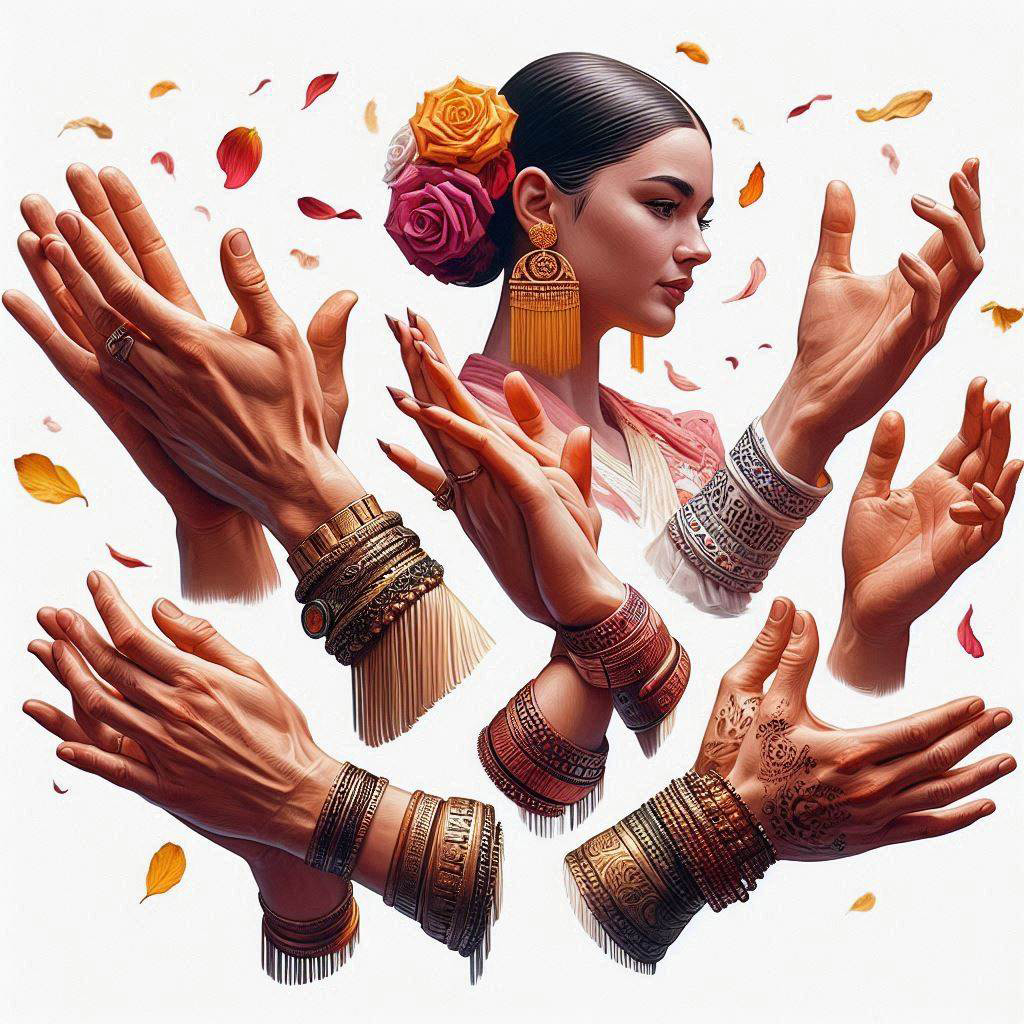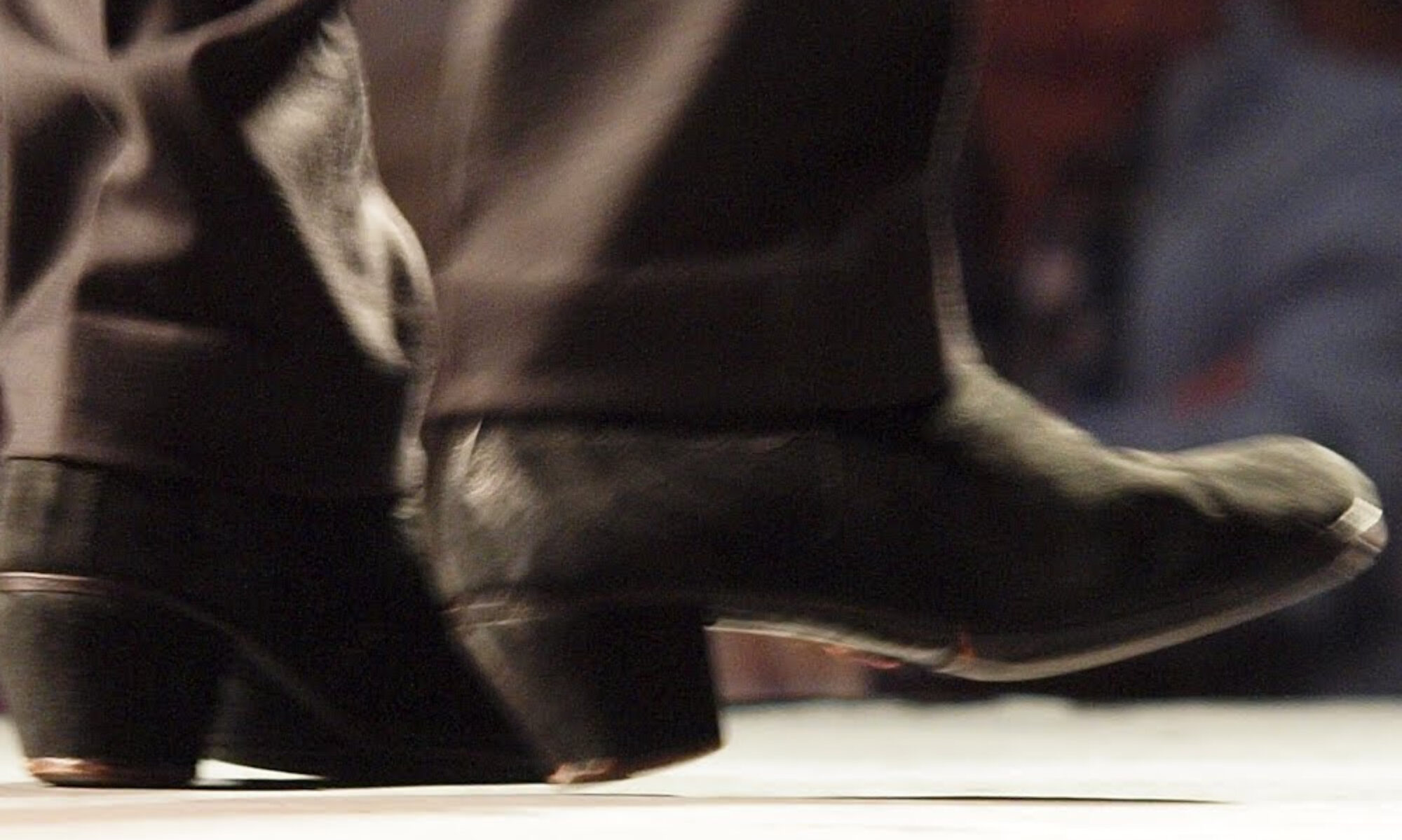
The Poetry Of Palmas – El Pantalon
In the enchanting world of Flamenco, where passion and rhythm intertwine like lovers in a dance of desire, there exists a mystical element known as Palmas. To delve into its purpose and history is to embark on a journey through the corridors of time, where legends whisper and the echo of footsteps reverberates in the soul.
In the heart of Andalusia, where the sun kisses the earth with its fiery embrace, there existed a small village called Almendralejo. It was a place where the wind carried the scent of oranges and the songs of gypsies echoed through the cobblestone streets. It was here that the origins of Palmas were said to be woven into the fabric of existence itself.

Legend has it that Palmas were born from the beating heart of Flamenco itself, an ancient art form that danced between the realms of the earthly and the divine. In the depths of despair and the heights of ecstasy, Flamenco found its voice through the rhythmic clapping of hands, a primal pulse that echoed the heartbeat of the universe.
The history of Palmas is intertwined with the history of Flamenco, a tale of love and loss, of passion and pain. It is said that the first Palmas were born from the tears of a gypsy woman whose lover had been lost at sea. In her grief, she began to clap her hands in a rhythmic pattern, a desperate plea to the heavens above. And thus, Palmas were born, a language of the soul that spoke of sorrow and longing, of hope and redemption.

As Flamenco spread across the land like wildfire, Palmas became an integral part of its expression, a chorus of hands that accompanied the dance of life itself. With each clap and tap, dancers wove tales of love and loss, of triumph and tragedy, creating a tapestry of emotion that transcended the boundaries of time and space.
But Palmas were more than just a means of accompanying Flamenco; they were a sacred ritual, a communion between the dancers and the spirits that dwelled in the shadows. It was said that the rhythm of Palmas had the power to summon the ancient gods of Andalusia, to awaken the spirits of the earth and sky.

And so, through the ages, Palmas remained a sacred tradition, passed down from generation to generation like a precious heirloom. In the hands of the gypsies and the flamencos, Palmas lived on, a testament to the enduring power of music and dance to transcend the boundaries of the mortal realm.
And to this day, in the heart of Andalusia, where the sun still kisses the earth with its fiery embrace, the echoes of Palmas can still be heard, a reminder of the timeless beauty of Flamenco and the eternal dance of life.


